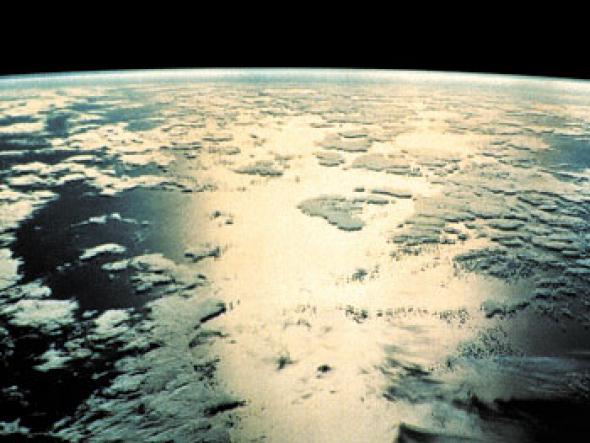About Everything, Really
What thing could be more fundamental in anyone’s universe than the existence of the universe itself?
This month we’ve put freelance scientist, environmental activist and free-range philosopher Mike Holderness on the spot. Unfazed by our request for his ‘PIN CODE’ to the universe, he’s given us the master key – the ontology of the universe itself
‘Tell us about something that’s fundamental to your universe,’ said Mute.
What thing could be more fundamental in anyone’s universe than the existence of the universe itself? Or, to put it another way, the nagging suspicion that there may not be anything at all.
As soon as people began to ask what exists, what we know of it and how we know we know, it seems problems started appearing. Among early writings – which should be classed as philosophy rather than any other genre – is Plato’s little teaser about the cave-dwellers who see only shadows projected on the wall. We, the recipients of the Dialogue, the supposed omniscient observers, know that there’s a whole world out there, but the cave-dwellers’ perceptions are their entire world.
A bit later, Descartes climbed into his stove and emerged declaring that all he knew for certain was that there was somebody asking a question. Later still, W.V.O. Quine quite memorably refined the problem in telling the tale of an anthropologist trying to discover what an alien people call things. ‘Gavagai,’ says an informant, pointing a finger at what the anthropologist calls ‘a rabbit.’ But what is ‘Gavagai’? ‘Lunch’? ‘Grass being eaten’? ‘Cuter than your lawnmower’? Or – and only a mathematically-minded philosopher could come up with this – ‘Non-disjoint collection of rabbit parts’? Almost certainly not ‘Rabbit’.
This deceptively simple story munches up (then shits out in little pellets) a philosopher’s last-ditch attempt to explain how any of our stories about ‘the world’ might be – forgive the jargon – ‘grounded’ in ‘things’. No, we can’t make a connection between language and a world out there by pointing to ‘a thing’ and uttering its name. We can’t even agree where one thing ends and another thing takes over the task of being a piece of the world.
All this seems to matter because each time we have to take – or especially to debate – a decision, we run into the notions that there are ‘facts’ about ‘things’. (Post-structuralism and post-modernism? Pah.)
A solution to the apparent problem might help us move beyond post-this-and-that. Certainly, it would save myriad tall woody things from the philosophers’ axe.
And there may be a solution in the form of an obscure school known as the ‘coherentists’’. There really isn’t space in this margin to do them justice, but I’ll try anyway. Give up, they say. Abandon the notion of a pyramid of facts about things and facts about facts, says Ernest Sosa, for example: think of a raft that floats our beliefs.
I imagine a Sargasso Sea of weedy statements about perceptions and statements about statements; not ‘grounded’ in anything but hanging together and firm enough, apparently, to walk on. Our beliefs are justified simply by virtue of them hanging together with loads of other beliefs, and others’ beliefs.
Mercifully skipping huge amounts of philosophical invective, the reason that the coherentists are obscure seems to be that they’re felt to be cheating. This idea of justification is circular, say the foundationalists.
But the foundationalists’ problem, I think, is that their first instinct is always to step back from the tangle. And that was precisely Plato’s problem, I modestly suggest: sneaking in the narrative device of an omniscient observer.
Try stepping into the tangle to get a better view. The universe is not out there, described; it is made of this tangle of descriptions. The weed-raft of the Sargasso Sea is not floating in some wider thingy, it is not becalmed in some tropical Doldrums of something else: it is what is.
Or it’s all we know about and can know about, which comes down to pretty much the same thing once we stop hankering after a God’s-eye-view. Stop doing that, and the worry that our entire belief system may be a collective self-delusion goes away too. Who else are we supposed to ask about how things are if not each other?
Descartes’ error was to climb into that stove: we know nothing in isolation, but can only agree what we know together. Our famous minds aren’t much without a culture. And we face a really interesting challenge in finding out what things we can change our minds about. Gravity? Unlikely. Capitalism? Bet we can.
Mike Holderness <mike AT metamute.com>
For information on the coherentists, see Epistemology: The Big Question // Blackwell // 1998 // ISBN 0631295802
Mute Books Orders
For Mute Books distribution contact Anagram Books
contact@anagrambooks.com
For online purchases visit anagrambooks.com








